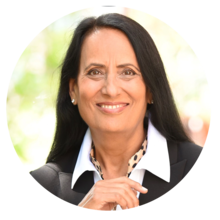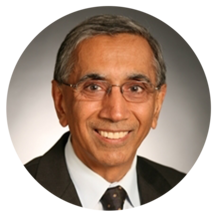About this Presentation
Eli responds to questions previously submitted by the audience. Goldratt discusses the difference between simplifying a system and identifying the inherent simplicity of a system. He discusses the use of the industry templates as a means of getting the company to use the TP. He discusses movement into the services, including knowledge work. Templates have to be developed for these areas. Templates in healthcare will be vastly different from the previous 8 templates. Bill West discussed the introduction of TOC in healthcare and his six year journey. Emergency departments (ED) were the first application; the target was to get someone into the ED and treated in 4 hours. Discharge planning was next; a simple application of critical chain. Theater scheduling was next. The core cloud was A To run an effective healthcare system B You must treat the patient in front of you D You must manage and deliver treatment of the patient in front of you. C You have to be able to treat everybody in the system. D You must operate within the finances of the system. Another venue is how do you debug a huge computer system? Goldratt then discussed the market economy; China is a massive powerful manufacturing force today, a labor shortage is emerging; salaries went up 25% last year; China will soon be the largest consumer market also. The same is happening in India. A discussion of TOC in education included using the TOC TP to solve discipline problems, using the TP to teach any content; and using TOC in better managing the school. Goldratt discusses his failure to identify how to measure individuals in a company. He thought the answer was a fully developed S&T tree but it failed because you have to be a genius to write an S&T tree. Templates were then discussed: 1. VMI 2. Rapid Response (Zycon) 3. Distribution 4. Projects (bonuses - penalties) 5. Gain sharing (selling a product for a percent of the outcome when you do your business) 6. Availability insurance (charging for the fact that you make something available to the client: spare parts. ) 7. Pay per click (you don't buy the machine; you pay for the use of the machine) 8. Guaranteeing throughput per shelf (valid for chains). Viable Visions support elevation of the market not the resources. Eli then conducted an question and answer session. (no slides used).
What Will You Learn
To help you get the most value from this session, we’ve highlighted a few key points. These takeaways capture the main ideas and practical insights from the presentation, making it easier for you to review, reflect, and apply what you’ve learned.

The speaker emphasizes the importance of finding inherent simplicity in complex systems and teaching people how to use it.
The speaker discusses the application of these principles in healthcare and other industries, and the need for careful planning and implementation.
The speaker mentions the growth of China's economy and its impact on global markets, and the importance of exploiting existing resources before elevating or expanding.
Instructor(s)
Eliyahu M. Goldratt

Ms Alka Wadhwa
Alka Wadhwa is an experienced consultant and process improvement expert with over 24 years of expertise in the Theory of Constraints (TOC), Lean Six Sigma, and organizational performance optimization. She has successfully led projects in healthcare, financial services, and manufacturing, driving significant improvements such as a 67% boost in hospital operations and a 140% increase in outpatient visits.
Previously, Alka Wadhwa spent 17+ years at GE Global Research Center, where she led initiatives to enhance various GE businesses through advanced technologies, process redesign, and system optimization. Founder of Better Solutions Consulting, LLC, she specializes in using TOC, Six Sigma, and data analytics to streamline operations and build high-performance teams.
Her work has earned her multiple accolades, including the Empire State Award of Excellence in healthcare.

Dr Gary Wadhwa
Dr. Gary Wadhwa is a Board Certified Oral & Maxillofacial Surgeon with extensive experience in the field. He completed his Oral & Maxillofacial Surgery training at Montefiore Hospital, Albert Einstein College of Medicine in Bronx, NY, and has served as an Attending at prestigious institutions like St. Peters Hospitals, Ellis Hospital, and Beth Israel Hospital in NY. With a career spanning over two decades, he was the former CEO and President of a group specialty practice in NY from 1994 to 2015. Dr. Wadhwa holds an MBA from UT at Knoxville, TN, and has undergone additional training in System Dynamics at MIT, Health System Management at Harvard Business School, and Entrepreneurship and healthcare innovations at Columbia Business School. Committed to expanding access to Oral & Maxillofacial Surgery care, he is currently engaged in a meaningful project to provide healthcare services to underserved populations in inner city and rural areas through non-profit Community Health Centers.
